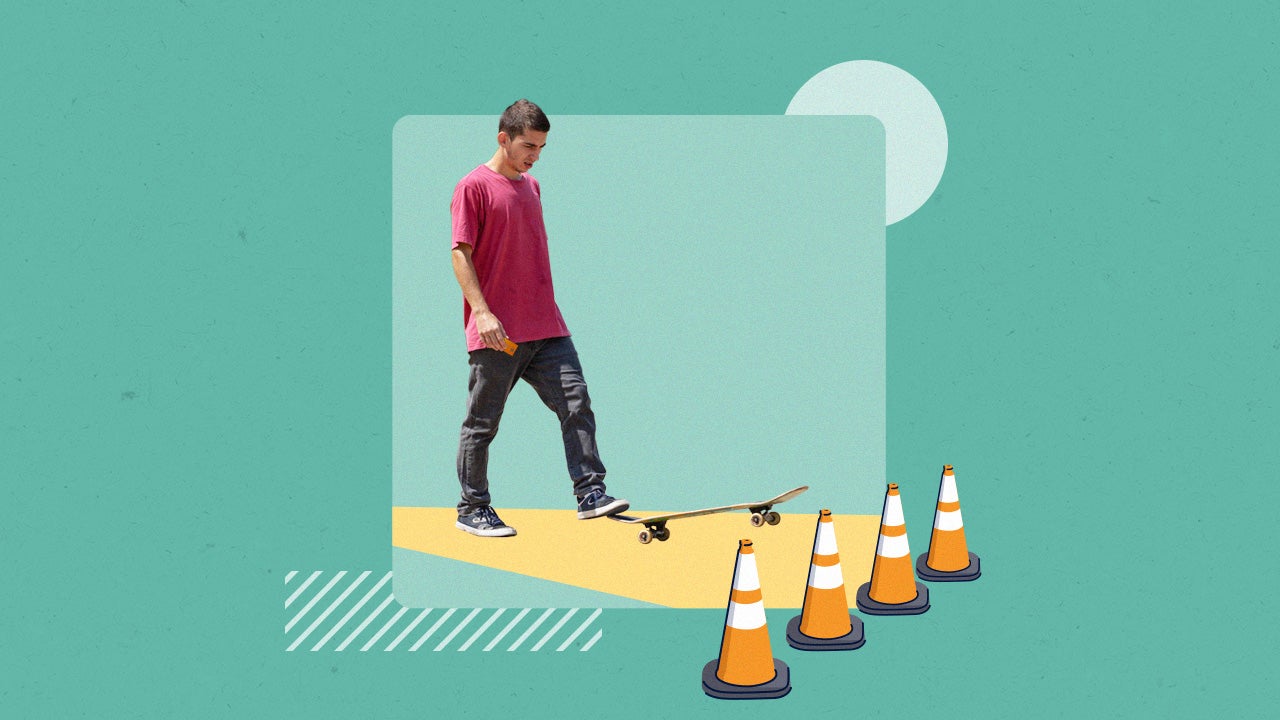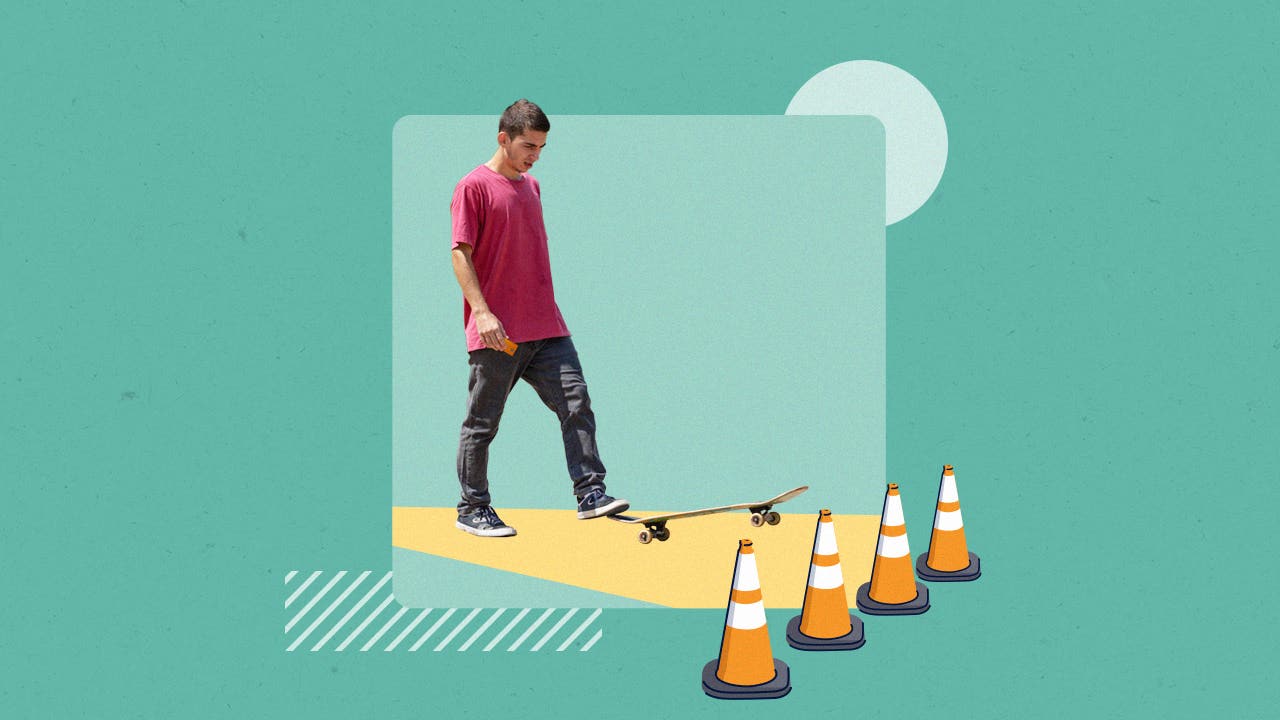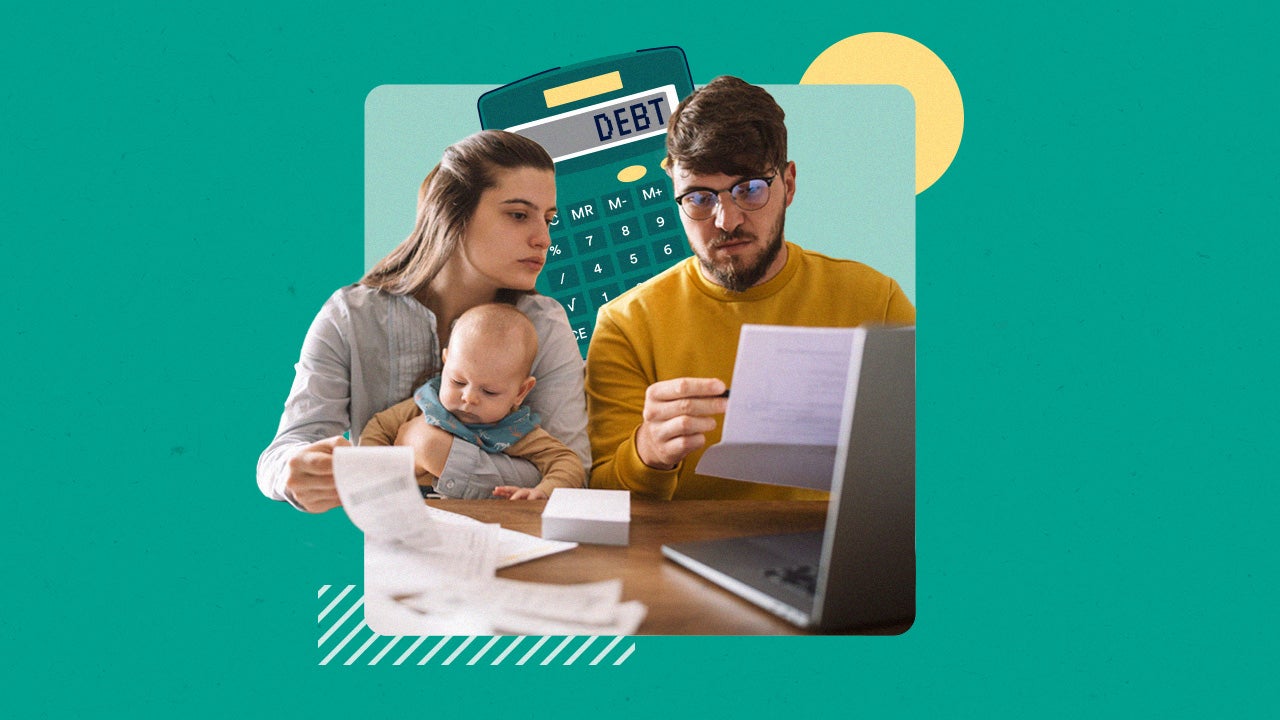Common debt payment roadblocks and how to tackle them



The process of debt repayment isn’t always a smooth one. While you probably hope you don’t hit any snags as you pay your balance, a lack of experience or unexpected life events can seem like roadblocks. These factors may prevent you from making payments or starting your repayment journey in the first place.
While these roadblocks can be challenging, they don’t have to end your repayment journey. It may take some extra planning, but it’s possible to pay off your debt even with setbacks if you have the right resources.
Roadblock 1: Not knowing where to start
Is your biggest roadblock not knowing how to begin your journey? Having large amounts of debt, multiple loans or a complex debt situation might leave you wondering how to tackle your balance.
Money tip: Building an action plan for tackling your debt will help take away some of the mystery.
How to handle it
- The first step to paying off your debt is to evaluate your finances — what you’re spending, what you’re making and the nature of your debt. Your budget will inform you of what expenses you can cut and how much money you can dedicate to your debt payment. This information will help you build a repayment plan.
- After evaluating your finances, you can use a debt repayment calculator to see how long it’ll take to repay your debt with the payments you can afford. This will give you a timeline and clear goals for your repayment journey.
- Using a debt payoff method such as the debt avalanche or debt snowball can help you prioritize paying off higher-interest debt, allowing you to have the maximum impact on paying down your debt.
- Multiple debts can also be consolidated into a single loan to simplify your payments and possibly get a better interest rate. However, consider the fees involved and ensure you don’t end up paying more interest in the long run.
If you’re having trouble building a budget or evaluating which loans to pay off, see if free resources can help. The Consumer Financial Protection Bureau (CFPB) offers online resources for budgets and calculating debt payoff in addition to counseling services, for example, and The Foundation for Financial Planning offers pro bono financial planning for those who qualify.
Roadblock 2: Lost income
Losing your job, having your hours cut or working through a slow business period can put pressure on your budget and your debt repayment plans. You might be worried about not making enough to cover your bills and whether you’ll be able to make your minimum debt payments, which can throw off your repayment plan.
How to handle it
- One of the best ways to mitigate the impact of a job loss is to have an emergency fund in place. Having savings for three to six months’ worth of essential expenses can give you some breathing room while you get back on your feet. You can continue making your debt payments and stay on track.
- If you don’t have an emergency fund or want to supplement what your fund is providing, you can look into resources for the employed and underemployed. If you lost your job through no fault — for example, a layoff — you can file for unemployment benefits through your state’s unemployment office.
- You can also see if you qualify for other financial assistance and aid programs such as food stamps, food banks, Temporary Assistance for Needy Families (TANF) and other local, state and federal programs. You may also qualify for Medicaid if you’ve lost your employer-provided health insurance.
- Another key step is to evaluate your budget. If you’ve been keeping your budget updated, you should know your typical monthly required expenses. Your essential expenses will take priority, while discretionary expenses will have to go on the back burner for a while.
- You can also cut down on costs with steps such as switching to a cheaper grocery store or wearing a sweater instead of turning up the thermostat.
- Continue to make at least the minimum payments on your existing debts. If you can only focus on paying off a few debts, you may want to talk to your lenders about pausing your payments through deferment. While interest will continue to accrue on your balance, deferment can buy you some time without damaging your credit or paying late fees.
Roadblock 3: Unexpected expenses
Emergencies never happen when it’s convenient. Medical bills, inflation, car repairs and other surprise costs can drain your savings and set you back. If you don’t have enough to cover the expense, you may even have to take on additional debt.
How to handle it
- As mentioned, an emergency fund can be a lifeline for covering unexpected bills. Even if it doesn’t completely pay for the expense, it can reduce the impact you see on your finances.
- Like with a job loss, see what resources you can rely on to help cover your expenses and readjust your budget to help cover your bills. For example, if you have a good interest rate on a mortgage, you may want to consider rolling the debt into the existing loan with a home equity line of credit (HELOC).
- Building out an adjusted timeline for debt repayment after an unexpected expense is key. You may have to reduce your debt repayments to fund an emergency expense. By building a clear timeline with a repayment calculator, you know how and when your balance will be repaid.
Roadblock 4: Not thinking debt is a big deal
While being in debt is nothing to be ashamed of, it is still a serious financial condition to pay attention to. Guilt or fear may prevent you from confronting the problem head-on. A grace period, a low introductory APR or a seemingly affordable minimum payment may lead you to believe you can put off paying your debt.
However, a balance left too long can quickly spiral out of control.
How to handle it
Waiting to pay off your debt isn’t a great idea. While a deferment period can give you a chance to get back on your feet if you’ve lost your job, you shouldn’t indefinitely put off making payments or planning to pay off your debt.
- Let’s say you take on $5,000 in credit card debt with an 18 percent APR and a minimum payment of 1 percent of the balance plus interest — a starting payment of $125. While this might seem manageable, you’ll pay $6,923.09 in interest over 273 months. That’s 139 percent of the original loan over nearly 23 years!
- Meanwhile, if you focus on paying down your debt and dedicate $500 each month to your credit card debt, you’ll pay only $458.11 in interest over 11 months. For just a few hundred dollars more, you’ll pay less than 10 percent of your original debt in interest in less than a year.
Debt is something that can be used as a tool — one that should be taken seriously. By confronting your balance and building a plan, you’ll save yourself interest in the long run and free up your finances for the future.
If you’re worried about how paying off debt will affect your lifestyle, you can build a budget that works for you. You can pay off your balance in a timely manner and still have room for what matters to you — whether it’s your weekly coffee run or attending your friend’s wedding.
Roadblock 5: Too much debt
Is your debt overwhelming? Taking on a large amount of debt can happen to even those with good financial planning skills. If you feel you won’t be able to pay off your debt in a reasonable amount of time, you have a few options.
How to handle it
How much debt is too much debt?
Let’s say you’ve completed your budget. You’ve trimmed every expense, calculated your income and dedicated every spare penny toward your debt payment. You’ve decided on a payoff method and plug the payment you can afford into a payoff calculator.
- Maximizing your income can be one step toward managing your debt. Consider taking on a side gig, asking for a raise, undergoing additional training to get promoted or taking on a higher-paying job. Raising your income can help supplement your payments, possibly shortening your repayment timeline.
- Refinancing your loan may be another option. If you have a good credit score, or if some of your loans are older, you may be able to get a better interest rate by refinancing.
- If your extra income isn’t enough or financing isn’t an option, you may want to consider debt relief.
A debt relief company such as National Debt Relief can negotiate with lenders to reduce your balance. The company can help adjust your payments to what you can afford and allow you to pay off your balance in a reasonable amount of time. If you qualify, debt relief can be a way to reduce your balance and see your debt paid off in your lifetime.
What next?
Debt doesn’t have to be forever. While unexpected expenses, layoffs and other roadblocks can seemingly bring your debt payments to a halt, you can get back on track with the right planning, the right resources and options such as debt relief.
If you want to learn more about managing your finances, mental health and debt repayment plan, check out Bankrate and National Debt Relief’s ongoing article series about all things debt. Watch this space for tips, tricks and exclusive stories from readers like you and their debt repayment journeys.
Why we ask for feedback Your feedback helps us improve our content and services. It takes less than a minute to complete.
Your responses are anonymous and will only be used for improving our website.



